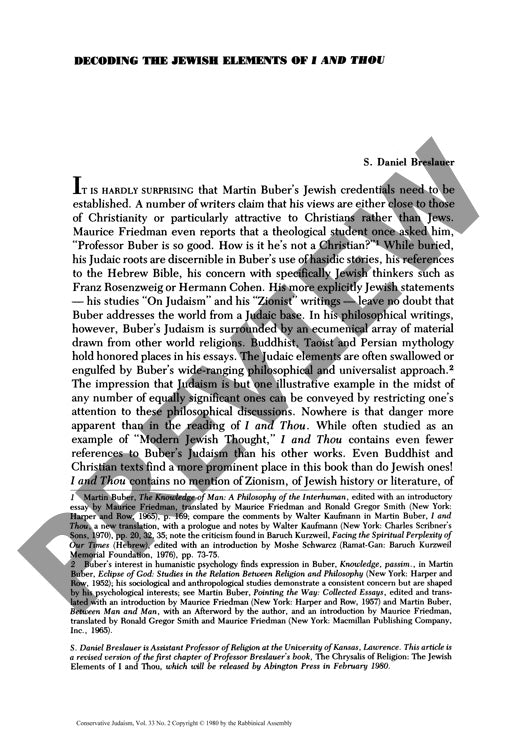Decoding the Jewish Elements of I and Th
Couldn't load pickup availability
Martin Buber's "I and Thou" appears strikingly devoid of Jewish references, yet beneath its universal philosophical surface lies a deeply Jewish framework waiting to be decoded. By examining Buber's extensive writings on Judaism, Hasidism, and Zionism, we find that "I and Thou" serves not as an independent philosophical text, but as a philosophical prologue to Buber's reconstructed Judaism. Through analysis of Buber's distinctive approach to Jewish religiosity, particularly his interpretation of Hasidic teachings, four key elements emerge: affirming the self, affirming the world, acting for God's sake, and transforming both self and world through these affirmations. The text's tripartite structure mirrors fundamental Jewish religious concerns: the divided self that monotheism addresses, fragmented social existence resolved through messianic idealism, and the tension between static religion and dynamic religiosity. While lacking explicit Jewish content, "I and Thou" embodies distinctively Jewish responses to existential problems and reflects what Buber terms the "two foci of the Jewish soul"—the dynamic between individual unity and communal wholeness. This analysis reveals how Buber's philosophical anthropology, rooted in his Jewish consciousness, makes "I and Thou" legible as a Jewish text when viewed through the lens of his broader Jewish writings.

More Information
-
Physical Description
-
Publication Information
Published 1980
ISBN
-
Publication Credits
S Breslauer

